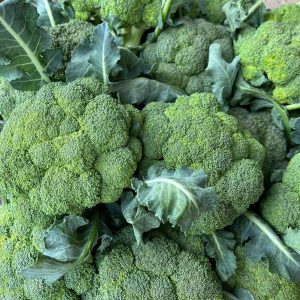
If you’re managing high blood pressure, the last thing you want is to find out your medication might actually be doing harm.
A new study has raised concerns that L-type calcium channel blockers (LCCBs), one of the most widely prescribed blood pressure drugs, could negatively impact heart health. That’s why many people are turning to natural ways to manage hypertension.
Below are 13 vitamins, nutrients, and herbs—some available as supplements, others found in everyday foods—that can support healthy blood pressure levels.

13 vitamins, nutrients, and herbs for healthy blood pressure levels
1. Vitamin C
This powerful antioxidant helps protect nitric oxide, a compound that relaxes blood vessels and supports circulation. Studies have shown that daily doses between 300–1,000 mg can significantly reduce blood pressure in people with hypertension. It also supports collagen production, which keeps heart tissues healthy.
2. Vitamin D
Vitamin D deficiency has been linked to increased blood pressure. One large review found that people with higher vitamin D levels had nearly 30% less risk of developing hypertension. Supplement with vitamin D3 for best absorption.
3. Hawthorn
Hawthorn berries are rich in flavonoids that improve circulation and protect the heart from oxidative stress. Both human and animal studies show it helps reduce blood pressure and supports healthy cholesterol levels.
4. Vitamins B
Several B vitamins, especially B6, B2 (riboflavin), and B9 (folate), may help lower blood pressure. Niacin (B3) works as a vasodilator, relaxing blood vessels and improving blood flow.

5. Omega-3 Fatty Acids
Omega-3s reduce inflammation, blood lipid levels, and high blood pressure. A review of 71 studies suggests around 3 grams per day is optimal for lowering blood pressure.
6. Hibiscus
Hibiscus tea is known for its ability to reduce blood pressure by promoting the removal of salt and fluid from the body. Multiple studies show significant reductions in systolic blood pressure after regular hibiscus consumption.
7. Saffron
Saffron contains antioxidants that reduce inflammation in arteries. Studies show it can significantly lower blood pressure in as little as one week when taken as a supplement.
8. Arjuna Bark
Arjuna bark is rich in coenzyme Q10, which improves heart function and helps relax blood vessels. It’s shown promise in supporting cardiovascular health and reducing blood pressure in various studies.
9. Magnesium
Magnesium helps regulate blood pressure by boosting nitric oxide in the body. A daily intake of 365–450 mg can significantly lower blood pressure. Choose magnesium glycinate or malate for better absorption and fewer digestive issues.

10. Ginger
Ginger has been shown to reduce blood pressure, triglycerides, and blood sugar when taken regularly. In one study, consuming 2 grams daily led to noticeable improvements in metabolic health.
11. Potassium
Potassium helps the body eliminate excess sodium, easing fluid retention and relaxing blood vessels. People with kidney disease should monitor intake, but for most, a diet high in fruits and vegetables provides plenty of potassium naturally.
12. Garlic
Garlic supplements can significantly lower both systolic and diastolic blood pressure. One review found average reductions of 8.3 mm Hg and 5.5 mm Hg, which may reduce the risk of stroke and heart disease by up to 40%.
13. Vitamin K2
Often overlooked, vitamin K2 prevents calcium buildup in arteries, keeping blood vessels flexible and reducing arterial stiffness. Taking K2 with D3 ensures calcium is directed to the bones instead of soft tissues.
Final Thoughts
Most of these 13 nutrients can be added to your diet through whole foods—like leafy greens, berries, fatty fish, and herbal teas—or taken as supplements when needed. Together, they offer a natural approach to managing high blood pressure and protecting your heart long-term.




